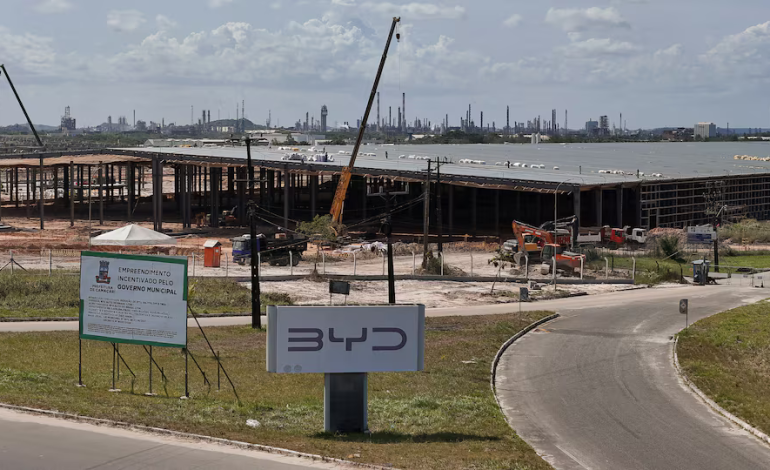Brazilian Authorities Report Human Trafficking Involving Workers at BYD Construction Site

Brazilian labor authorities have confirmed that 163 Chinese workers found at a construction site for electric vehicle maker BYD in Bahia state were victims of international human trafficking.
The workers, employed by BYD’s subcontractor, Jinjiang Construction, were reportedly subjected to deplorable living and working conditions.
According to a statement released late Thursday, local authorities claimed that the workers faced overcrowded dormitories, inadequate facilities, and unsafe working conditions. Additionally, reports indicate that their passports were confiscated, and 60% of their wages were withheld. The workers had been recruited under the pretext of providing technical assistance but were allegedly brought into the country under irregular circumstances.
In response to the situation, BYD stated that it had terminated its contract with Jinjiang, and both companies agreed to temporarily house the workers in hotels while negotiations over ending their contracts were underway. However, both BYD and Jinjiang denied the labor authorities’ assessment, with Jinjiang, in particular, challenging claims of “enslavement” and asserting that cultural misunderstandings and translation errors contributed to the inaccuracies in the official statements.
The investigation, carried out by a multi-agency task force including the Brazilian labor ministry, public labor prosecution office, federal public defender, and police forces, remains ongoing. Brazilian labor inspector Liane Durão noted that further investigation would focus on other contractors involved in the construction project.
BYD emphasized its “zero tolerance” policy for violations of Brazilian law and human rights and affirmed its commitment to ensuring fair treatment for all workers. Despite the company’s response, Jinjiang, based in Sichuan, China, has continued to refute the claims, with a Chinese-language statement on social media arguing that the allegations were part of an effort to undermine China-Brazil relations.
With input from Reuters and the Financial Times.








